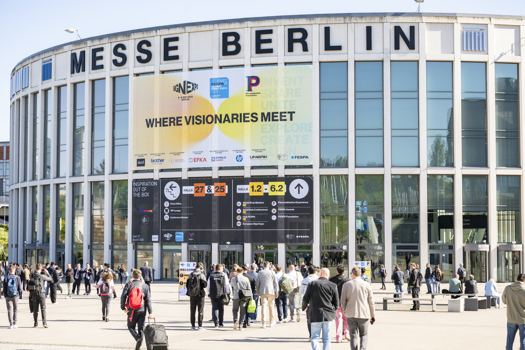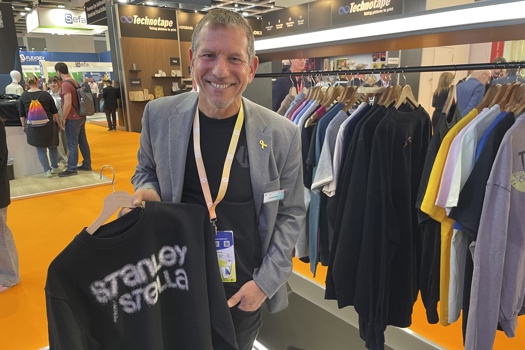Green Alliance published the report Plastic promises: What the grocery sector is really doing about packaging last month as part of its work for the Circular Economy Task Force.
Industry insiders interviewed feared that confused consumers might put compostable plastic in with conventional plastic or non-recyclable material, wrongly assuming it will biodegrade in the open environment.
Interviewees also said that by switching from plastic to other materials such as paper bags and compostable or wooden cutlery businesses might, in some cases, actually be increasing their carbon footprint.
The report cautioned that solving the plastic pollution problem without increasing other environmental burdens “will require an approach that tackles wider concerns around unsustainable resource use”.
“It is a challenge that businesses, government and the whole of society must jointly face. At the sharp end of the current debate are companies, particularly in the grocery sector, that use plastic packaging. They are now under great scrutiny, and often public pressure, to stop using the material,” the report added.
This has led to knee-jerk reactions by many businesses who, in some cases, have switched to alternatives without fully evaluating the environmental impact of those alternatives.
Clare Taylor Consulting senior consultant Clare Taylor says that while many companies want to “do the right thing”, the reality of what this entails is not necessarily what the consumer believes is the best course of action.
She says: “Companies are under a lot of pressure from customers and are being driven to be seen to be doing what the consumer perceives to be the right thing.”
“Consumers are very confused; research from focus groups that I’ve done backs up the desktop research. People particularly don’t understand the differences between bio-based, biodegradable and compostable.
“People assume that compostable is going to be automatically better. But you need to take the whole waste infrastructure into account, and that wasn’t touched upon very much in the report.”
She adds: “If you think about how many people in the UK have gardens in the first place, how many of those do composting? And there are issues about food waste and what happens to that.
“If you look at the environmental cost of growing, manufacturing, transporting and storing food, actually food waste is far worse than using plastic to extend its life, so it’s very complex.”
Joanna Stephenson, managing director of PHD Marketing, says there has been “much maligning of the packaging sector, misinformation and lack of understanding of what is a really complex issue” and that the Green Alliance report “accurately reflects the concerns the retail and packaging industries have had for some time”.
“The carbon footprint reality is only just starting to emerge in the media and therefore consumers are completely blind in 2020 to the realities of many of the choices they are making or trying to select,” she adds.
“Those of us that have tried to communicate the carbon agenda against what has been a fairly aggressive anti-plastic lobbying situation have been shot down voraciously by consumer groups and unfortunately by some divisive debates in the packaging sector itself.
“Rather than blinding consumers with science, we need to find a way to indicate carbon emissions choices, just like calorie counting on packs, if sustainability of packaging is to remain forefront in consumer concerns.”
Stephenson says plastic has become ubiquitous in packaging design for a number of reasons.
“[It’s] lightweight, robust, tough, puncture resistant, high barrier, recyclable (for some polymers), transparent, etc. No other material simply offers the same functionality in one single material at a low cost.
“Much of the issue lies with incompatible recycling streams and human behaviour i.e. littering, but the media have chosen to focus on material choice rather than infrastructural and societal issues to focus the heat.”
Green Alliance’s report said some UK supermarkets have recently switched from single-use plastic bags for loose produce and bakery items, and have in some instances replaced them with single-use paper bags.
It called this “a worrying trend”, quoting a 2011 study from the Northern Ireland Assembly which found that paper bags generally require four times as much energy to manufacture as plastic bags.
But Greg Selfe, country manager at Two Sides, has concerns “that the benefits of paper packaging are considered ‘misleading’ by [the Green Alliance] report”.
“It is a shame that the report overlooks the fact that 85% of paper packaging is recycled in Europe, compared to just 42% of plastic,” he says.
“A healthy market for forest products, such as paper packaging, encourages the long-term growth of forests through sustainable forest management.
“Europe’s growing forest area enables increased carbon sequestration and therefore helping to tackle global warming. The production of single-use plastic packaging creates no such positive externalities nor indirect benefits to the environment.”
Meanwhile, a new infographic published by The Paper Bag, an association of major European manufacturers of kraft paper and paper carrier bags, has stressed the extent to which paper carrier bags contribute to combating climate change.
It said “consumers can rely on strong packaging that carries anything up to 12kg, can be reused several times and be recycled [and that] if paper bags end up in the natural setting, they degrade within 2-5 months and do not harm the environment”.
Whatever the material, packaging has become a major scapegoat in environmental discussions; a situation Stephenson hopes will change.
“What we should be addressing is the production of waste (whatever it may be) and human behaviour. We have 2 billion people on the planet with inadequate food and clean water, and yet we’re wasting millions of tonnes of food in western economies,” she says.
“Let’s switch the debate to the things that are really going to make a difference to the planet and climate change instead of attacking something that is actually minimising waste and supporting society.”










